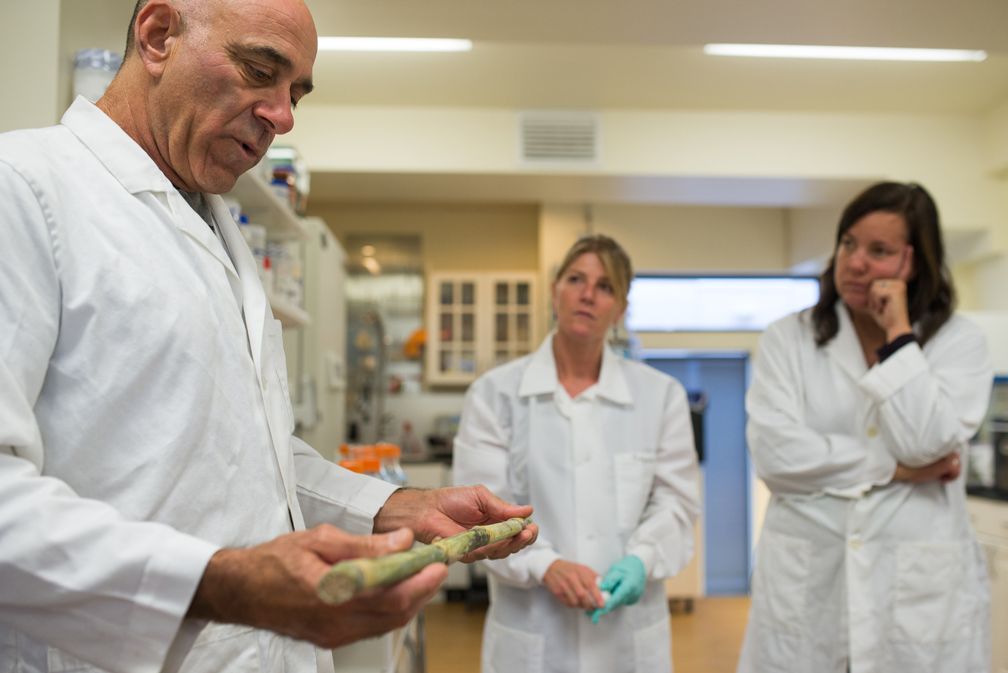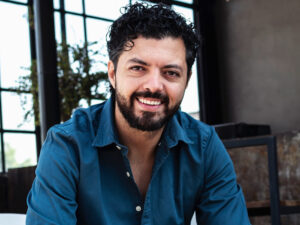Editor’s Note: Adaptive Symbiotic Technologies (AST) is launching a $900k fundraising campaign on AgFunder. AST is hosting a webinar on July 7 to speak about the opportunity.
The words “fungus” and “crops” paired together are likely to evoke images of diseased plants with wilted, yellowing leaves. But instead of causing harm, what if fungi could unlock desirable traits in plants? Combining decades of research, a Seattle-based biotechnology company called Adaptive Symbiotic Technologies (AST) has formulated a line of products to do exactly that.
Founded in 2008, AST has developed a microbial seed coating treatment called BioEnsure that helps plants flourish in soils with high salinity and become more resistant to extreme heat, cold, and drought. In field tests, it was determined that plants treated with liquid formulations of BioEnsure were less stressed by hostile environments and therefore better equipped to thrive under those conditions. Based on trials, yields were boosted by 85 percent under “severe drought conditions,” with increases of up to 15 percent at “low stress levels.”
According to microbiologist and AST CEO Rusty Rodriguez, the $3.6 billion seed treatment market is prime for a product like BioEnsure. “You’ll find bio-pesticidal and bio-nutritional treatments, but there are no other products on the market right now that focus on stress-tolerant fungi,” he said. “[BioEnsure] minimizes fertilizer and water needs while increasing nutritive capacity for harvesting. It’s an all-encompassing product.”
Development dates back to the mid-‘90s, when Rodriguez and geneticist and AST founder Regina Redman began studying heat tolerance in indigenous plants at Yellowstone National Park, where temperatures can spike up to 65 degrees Celsius. They found that plants colonized by a diverse group of microbes known as fungal endophytes were able to cope with the high temperatures and more efficiently photosynthesize in arid landscapes.
“We discovered that the plants themselves weren’t adapted to their habitat; their survival was dependent on the fungi,” Rodriguez said.
Twenty-plus years later, what was initially dubbed a “pure research project” became a commercial venture to address the climate changes that could throw ecosystems out of whack and threaten agricultural productivity. Growing crops that can withstand unstable abiotic factors, says VP of Business Development Zachary Gray, might be the key to feeding the world in the future.
“Climate change is the issue of the century,” said Gray, who joined the team in 2012. “It continues to alter the paradigm of water availability, the severity of storms, and the components of temperature. Those shifts could result in a loss of arable land and a global decline in food production.”
Although fungal endophytes reside in most plant species and are considered to be non-pathogenic, functions of the fungi-host relationship are complex and are still not fully understood. Rodriguez says the team has spent years testing the BioEnsure formulas, and so far, no adverse effects have been documented in treated plants. “Conventional thought tells us these organisms should be a drain on plants, but after years of testing, the worst result we’ve captured is no response.”
Presently, BioEnsure is green-lighted for use in 28 states, and the team plans to expand according to demand. Corn and rice formulations are ready for sale. Fungal strain applications for corn, rice, wheat, and soybean crops continue trials, and AST is now perfecting formulas for cotton, sugarcane, grasses, and barley, among others. To test the efficacy of BioEnsure in conjunction with other existing seed treatments, the company has also partnered with big industry players, including Monsanto, DuPont, Bayer, and INCOTEC.
AST is preparing a $900,000 fundraising campaign on AgFunder beginning in July. The proceeds from this fundraising round are expected to further international R&D efforts, production and help solidify a commercial presence in the U.S. and abroad over a three-year period.
FEATURED IMAGE: Adaptive Symbiotic Technologies





